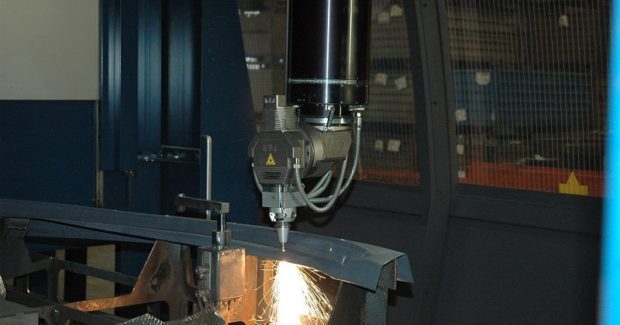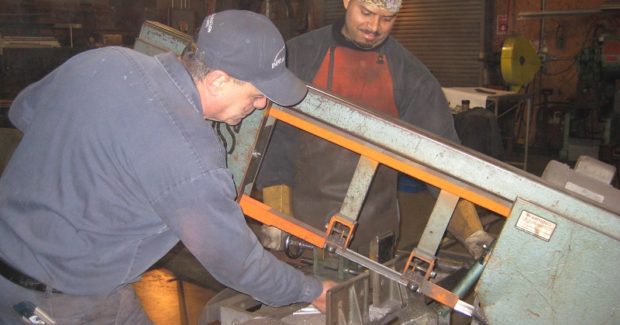The Sheet Metal MES
An integrated manufacturing execution system controls and records the transformation of raw materials into finished products. In the new world of connectivity and digitization, guest columnist Juan José Colás of Lantek explains how the MES has made production management the key factor in productivity and competitiveness for sheet metal fabricators, far beyond other traditional factors, such as the use of material, calculation of times and costs, elimination of paper, and faster transfer of information.
Posted: July 1, 2017
Connectivity and digitization are changing the rules of the game in sheet metal fabrication. The digitized and connected version of the factory, along with the change towards decentralized management models of both machines and plant, are forcing shops to equip themselves with intelligent tools that can analyze their businesses and enable them to anticipate more situations, rather than just reacting to past events. The amount of data passing through these shops is very large, so they need systems that can collect it, interpret it, and build a smart algorithm making it possible to work in a more planned manner.
Over time, production management has become the key factor in productivity and competitiveness for fabrication shops in the sheet metal industry, far beyond other factors that have traditionally been very important, such as use of material, calculation of times and costs, elimination of paper, and acceleration of the information transfer process. A manufacturing execution system (MES) is a software system used in production that controls and records the transformation of raw materials into finished products. An MES provides information that helps make decisions on how to optimize production based on the current conditions of a production plant. The software normally works in real-time and is connected to the rest of the existing management systems and production elements to allow for the control of multiple variables involved in the production process, including requests, personnel, machinery, or support services.
An MES that is adapted to the fabrication of sheet metal parts, tubes and pipe, or sheet metal profiles is composed of the following functional units:
- Management of product definition includes the assignment of product location in warehouses, version control, and exchange of information associated with each product with other systems. This function provides key information to the plant manager, such as production routes, cutting technology, itemization of materials, or specific characteristics (geometry, material, thickness), all focused on defining how to produce a part or product.
- Resource management includes the registration, modification, and analysis of information associated with each resource, either human or material (workplaces, if the material is to be cut or not), aimed at preparing production orders by using the most appropriate resources in terms of capacity and availability. Based on this structure, a set of data associated with production is created that, with the appropriate analysis tool, may be processed and made available to the manager or higher level systems.
- Production scheduling. The production of sheet metal parts, tubes and pipe, or sheet metal profiles is rarely a process that can be planned out in the medium-term. Agility, flexibility, and continuous change are desirable characteristics in a metal fabrication plant environment. Furthermore, on the shop floor it may be necessary to plan out minute details almost immediately, depending on the situation. In this environment, no one knows how to resolve each situation better than the workshop manager, which is why well-organized information is provided to him or her so that timely decisions can be made as quickly as possible, scheduling the work orders that best meet the established requirements and priorities. These systems must be connected to the business management systems so that business-related constraints can be applied to this schedule.
- Planning of work includes the creation and distribution of job tasks and activities to the workplaces. In this step, an appropriate consideration of the concept of nesting, where parts from different work orders and/or clients can be grouped together, becomes vitally important.
- Execution of production orders. Though the actual execution is performed in process control systems, the MES software can perform checks on resources and report on the progress of various production processes to other systems. In this case, it is also important to have a view of nesting in addition to the work order or request, and have the possibility of making last-minute changes to already-set schedules.
- Collection of production data includes the collection, storage, and exchange of process data, the status of the various pieces of equipment, parts pending/in-process/finished, real times, material used and scrap generated. Different software systems (such as Wos, Workshop Capture, and Opentalk) are available to deal with the variety of scenarios that may occur in an operating workshop.
- Analysis of production performance includes the creation of data and information from the raw data generated during production processes. For example, this function can provide OEE (overall equipment effectiveness) performance indicators or any other pertinent indicator.
- Monitoring and traceability of production. Recording all of the information related to production makes it possible, both in real-time and once the process ends, to know the status of any element during its processing, in addition to the materials and resources used during its manufacture. This, in turn, makes it possible to regulate quality and traceability when it is necessary to search for the causes of irregularities.
INTEGRATION
An MES by itself is meaningless in a company today. Integration with other operating systems or company or business management systems is essential for making correct decisions that are in line with the business objectives and strategy. For this reason, various system-to-system interface mechanisms are available for interconnecting ERP/MRP services (such as Powersync and Avantiaservices) with the machines themselves (such as Opentalk) or even with external CAD/CAM systems. This transforms an MES into an open system that cooperates in a dynamic, seamless way for the user, along with their environment, in the points of the process where it is needed, whether it is definition or validation of production. These mechanisms are possible thanks to the software platform the system is based on, which grants unlimited power of connectivity, even in real-time.
Consider a client that wants to implement a management system in a complex scenario where there are several companies related to sheet metal — but not all of them are centered on fabricating parts — with several production, logistics, and sales centers and that, given their turnover and the financial control involved, they need a financial ERP system that is able to provide analysis in that area. That client must choose very carefully which software is going to be used in the specific management of their fabrication centers. The MES should be in charge of providing the solution as it is integrated with an ERP software, with specific intelligence on metal production that extends and supplements whatever the ERP system generally manages.
This level of integration allows the MES to focus on optimizing the metal, mixing different orders/projects in the same work units, achieving the best possible use of resources, and maintaining the ability to control each part in detail (such as which operator and machine processed it, at what date and at what time, on what material, etc.) The ideal MES for transforming sheet metal, tubes, or sheet metal profiles is a system that is specific to metal. It is modular, scalable, integrated “to the core” with CAD/CAM software, capable of openly and dynamically collaborating with any system (machine, software) and is accessible from any type of device (web, mobile phone) and from any point.







